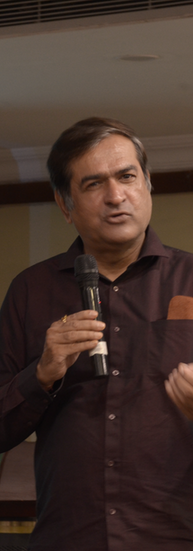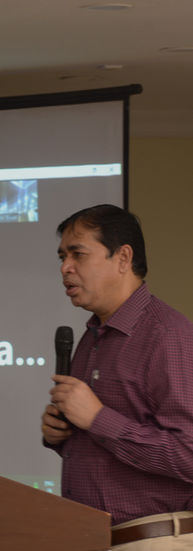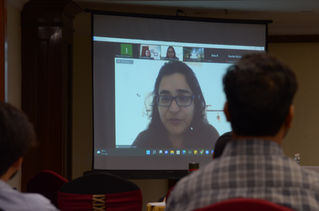Ranchi Urban Lab
Integrated Design (INDÉ) in collaboration with Mahila Housing Sewa Trust (MHT) conducted the third India
Urban Land at Ranchi (19-22 July 2022) with a thematic focus on ‘Water Resilience: Fostering Integrated Approaches at the Region, City, and Settlement Scales’. The Lab brought together participants from diverse backgrounds- architecture, planning, public policy, and social sciences-engaged in both research and practice. This participant diversity led to the emergence of innovative and multi-disciplinary perspectives during the very engaging four days of the Lab. Expert sessions, site visits, and hands-on working sessions helped the participants in developing water resilient approaches and solutions that combined traditional knowledge and lived experiences at the grassroot level, with policy and technical expertise.
WHY RANCHI ?

Tribal Settlements
Traditional societal rituals and customs

Ecosystem Dependency
Communities continue to rely on ecosystems for their livelihood

Haphazard Development
Ghettoisation of tribal hamlets and
unplanned development disrupting the socio-cultural landscape
OBJECTIVES OF THE LAB
The Ranchi Urban Lab anchors itself in the conceptual philosophy of IWRM (Integrated Water Resource Management) and IUWM (Integrated Urban Water Management) to promote water resilience at the regional, city settlement, and settlement scales. The Lab aspires to become a platform for participants from diverse backgrounds to co produce water resilient approaches and solutions that combine traditional knowledge and lived experiences at the grass root level with policy and technical knowledge. The Lab intends to integrate the three nested scales - Regional, City and Settlement.

LAB PROCEEDINGS
The Lab comprised of expert lectures by eminent personnel working in and for Ranchi around the themes of water resilience, governance, and related subjects. Mr Sudhir Pal (from Manthan Yuva Sansthan), Mr Kumar Premchand (from UNICEF, Ranchi), Dr. Nitish Priyadarshi (expert on water challenges of Ranchi), and Dr. Pawan Kumar Tiwari (from BIT Mesra) guided the Lab through their insightful perspective sessions.
While these laid the context and provided the necessary directions, the Lab aspired to comprehend traditional knowledge and lived experiences of the ones who are most impacted by water challenges through participatory and grounded processes.In line with this vision, the Lab organised site visits to case study settlements where a first-hand engagement with the community and their social, spatial, and ecological ecosystem helped the participants in understanding not just the challenges and issues that these communities face, but their inherent strengths and potentials as well. The ensuing discussions and deliberations in the Lab further fine-tuned their comprehensions and helped the participants in crafting policy, programme,and project level solutions to foster water resilience at different scales.
The conversations from the field were further deliberated with brain storming sessions among the participants and facilitators. These discussions were put across on the "Thought Board" and ideas were further distilled in the days through peer review sessions and expert lectures. The lab followed the ‘integrated water resources management’ approach in letter and spirit, the potential solutions were mindful of the interconnected nature of not just water challenges (like scarcity, quality, and access), but its causal relationship with land and its attendant governance systems as well.
Please find the lab report here !
PUBLIC EVENT
The Lab ended with a public presentation, where participants presented their findings and recommendations. The public event saw an active participation of relevant stakeholders like Deputy Mayor of Ranchi (Shri Sanjeev Vijaywargiya), Ex-Mayor (Shri Rama Khalko), community members and experts. Following the successful culmination of the Lab, INDE and MHT will be taking forward the recommendations that emerged during the Lab through policy suggestions and project interventions.
LAB PARTNER
Ranchi Urban Lab is being conducted by Integrated Design in collaboration with Mahila Housing SEWA Trust (MHT). Mahila Housing SEWA Trust ’s mission is to organize and empower women in poor communities to improve their habitat.


























































